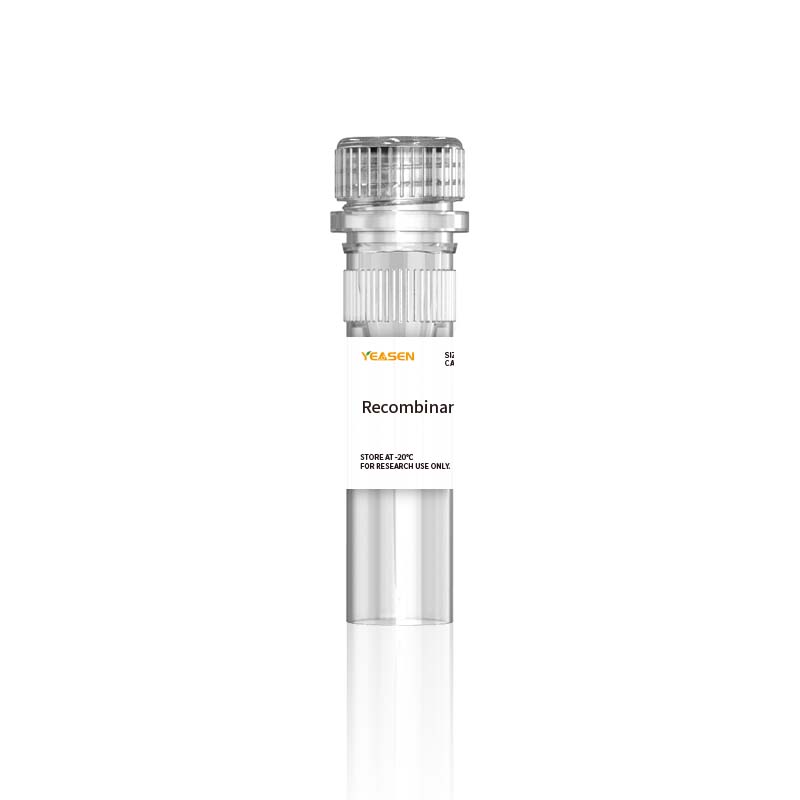Description
Epithelial Cellular Adhesion Molecule (EpCAM), also known as KS1/4, gp40, GA733-2, 17-1A, and TROP1, is a 40 kDa transmembrane glycoprotein that consists of a 242 amino acid (aa) extracellular domain with two EGFlike repeats, a 23 aa transmembrane segment, and a 26 aa cytoplasmic domain. During embryonic development, EpCAM is detected in fetal lung, kidney, liver, pancreas, skin, and germ cells. In adults, human EpCAM is expressed on basolateral cell membranes of all simple, pseudo-stratified, and transitional epithelia but not on normal squamous stratified epithelia, mesenchymal tissue, muscular tissue, neuro-endocrine tissue, or lymphoid tissue. It is additionally expressed on undifferentiated embryonic stem cells, thymocytes, and dendritic cells. It is up-regulated on actively proliferating epithelial tissues, during adult liver regeneration, and on many epithelial cell-derived carcinomas. EpCAM functions as a homophilic cell adhesion molecule. It associates into tetramers and forms complexes in cis with Claudin-7, CD44v6, TSPAN8, CD9, Integrin alpha 3, and Annexin A1 that can interfere with cell adhesion. Proteolytic cleavage of EpCAM releases multiple fragments from the ECD as well as a cytoplasmic fragment that can regulate gene transcription.
Specifications
|
Synonyms |
CD326; EGP; EGP-2; EGP314; EGP40; EpCAM; ACSTD1; DIAR5; gp40; HNPCC8; MOC31; TACST-1; TACSTD1; TROP1; ESA; KSA; MIC18; MK1 |
|
Uniprot No. |
P16422 |
|
Source |
Recombinant Human EpCAM/TROP1 Protein is expressed from HEK293 Cells with hFc tag at the C-terminal. It contains Gln24-Lys245. |
|
Molecular Weight |
Approximately 54.2 kDa. Due to glycosylation, the protein migrates to 60-70 kDa based on Tris-Bis PAGE result. |
|
Purity |
> 95% as determined by SDS-PAGE and HPLC. |
|
Activity |
ELISA Data:Immobilized Human EpCAM, hFc Tag at 1μg/ml (100μl/well) on the plate. Dose response curve for Biotinylated Anti-EpCAM Antibody, hFc Tag with the EC50 of 18.9ng/ml determined by ELISA. |
|
Endotoxin |
< 1.0 EU per 1μg of the protein by the LAL method. |
|
Formulation |
Lyophilized from 0.22μm filtered solution in PBS (pH 7.4). Normally 5% trehalose is added as protectant before lyophilization. |
|
Reconstitution |
Centrifuge tubes before opening. Reconstituting to a concentration more than 100 μg/mL is recommended (usually we use 1 mg/mL solution for lyophilization). Dissolve the lyophilized protein in distilled water. |
Storage
The product should be stored at -20~-80℃ for 1 year from date of receipt.
2-7 days, 2 ~8 °C under sterile conditions after reconstitution.
3-6 months, -20~-80℃ under sterile conditions after reconstitution.
Recommend to aliquot the protein into smaller quantities when first used and avoid repeated freeze-thaw cycles.
Note
1.Avoid repeated freezing and thawing.
2.Please operate with lab coats and disposable gloves, for your safety.
3.This product is for research use only.
Product Data


Payment & Security
Your payment information is processed securely. We do not store credit card details nor have access to your credit card information.
Inquiry
You may also like
FAQ
The product is for research purposes only and is not intended for therapeutic or diagnostic use in humans or animals. Products and content are protected by patents, trademarks, and copyrights owned by Yeasen Biotechnology. Trademark symbols indicate the country of origin, not necessarily registration in all regions.
Certain applications may require additional third-party intellectual property rights.
Yeasen is dedicated to ethical science, believing our research should address critical questions while ensuring safety and ethical standards.

